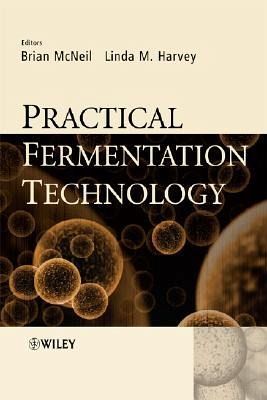
Practical Fermentation Technology

PAYBACK Punkte
114 °P sammeln!
This book is intended to aid the beginner, or less experienced fermentation scientist, by bringing together and setting down practical experiences in fermentation technology, with contributions from academic and industrial scientists and engineers with many years experience of carrying out fermentation processes of different types, from bench-top right up to the largest industrial production scales. It focuses on the practical skills and associated problems, cross-referencing to appropriate reading material dealing with the underpinning science or engineering where relevant. The book * begins ...
This book is intended to aid the beginner, or less experienced fermentation scientist, by bringing together and setting down practical experiences in fermentation technology, with contributions from academic and industrial scientists and engineers with many years experience of carrying out fermentation processes of different types, from bench-top right up to the largest industrial production scales. It focuses on the practical skills and associated problems, cross-referencing to appropriate reading material dealing with the underpinning science or engineering where relevant. The book * begins with a brief background on the development of fermentation, through the criteria for selection of lab based fermenters, with a chapter on the more specialised needs and challenges of equipping a lab for membrane protein expression, before moving on to practical aspects of cultivation modes, medium preparation and sterilisation, and culture preservation and inoculum work up techniques. * The modelling of fermentation processes is then discussed, followed by an examination of the practical aspects of scaling up or scaling down fermentations. The typical sensors used to monitor fermentations are then described and associated challenges presented. More specialised, and less frequently considered areas relating to fermentation are described, including the selection and use of Supervisory Control and Data Acquisition systems ( SCADA). * The penultimate chapter focuses on a brief discussion of the variability inherent in fermentation processes, their consequences and how this can be described and quantified. * The final chapter deals with a description of the various continuous culture systems (e.g. chemostats), and of how powerful these technologies are in helping us understand better the physiology of microbes, or cultured cells (animal or plant) via definition and control of their environment in the fermenter. This volume is not intended to be a handbook, but by presenting some of the more challenging aspects of the practice of fermentation, the learning curve of the newcomer may be accelerated, and their path to competence smoothed a little.


